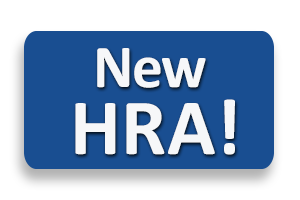 Many companies, particularly small businesses, struggle to provide ACA compliant health insurance to their employees. Almost every option other than a traditional, premium-based insurance plan is excluded from ACA exchanges, yet the cost of these seems to rise by the week. However, the new Congress has introduced an option that many business owners may find attractive: the Health Insurance HRA, or health reimbursement arrangement.
Many companies, particularly small businesses, struggle to provide ACA compliant health insurance to their employees. Almost every option other than a traditional, premium-based insurance plan is excluded from ACA exchanges, yet the cost of these seems to rise by the week. However, the new Congress has introduced an option that many business owners may find attractive: the Health Insurance HRA, or health reimbursement arrangement.
What Is an HRA?
When the ACA was passed, HRAs were explicitly defined as not meeting ACA standards. Employers that provided these could be fined up to $100 per day per participating worker. HR 34 will change this for plans beginning in 2017. In order to qualify, a health insurance HRA must meet the following criteria:
- Funded solely by the employer with no salary contributions from employees
- Provide payments for eligible medical expenses
- Not exceed $4,950 per calendar year for any eligible employee ($10,000 per family if family coverage is available)
- Be available to all eligible employees on the same terms
Employers must not be a large employer as defined by the law. In addition, they must not offer any group insurance plans at the same time. While there are several restrictions on HRAs, they appear to be promising as a less complicated and less expensive option for small business owners that wish to over health coverage outside of a traditional group insurance plan.
Downsides to the HRA
As with all types of health coverage, there are benefits and drawbacks to HRAs. First, it will not allow coverage of more than a relatively small amount, $4,950 a year. With medical costs rising by the year, a single trip to the emergency room can quickly wipe out funds. The HRA was originally meant to be an add-on to group insurance earmarked to cover deductibles and other expenses rather than a stand-alone plan.
Second, this plan will require oversight in order to work. Employers will have to ensure that their employees are only using the cash for approved issues, leaving business owners to determine what is and is not a medical expense. This also requires a certain amount of meddling in employee health that some may find awkward.
Is a Health Insurance HRA Right for You?
If you are a small employer with fifty or less employees, the HRA may be your best option. At less than $5000 a year, it is one of the most affordable options that will qualify for health insurance coverage. The money invested in this plan does not qualify for payroll taxes, either. While there will be a learning curve when it comes to administration and tax paperwork, this is an option worth exploring for employers who are strapped for money to put into employee benefits.


